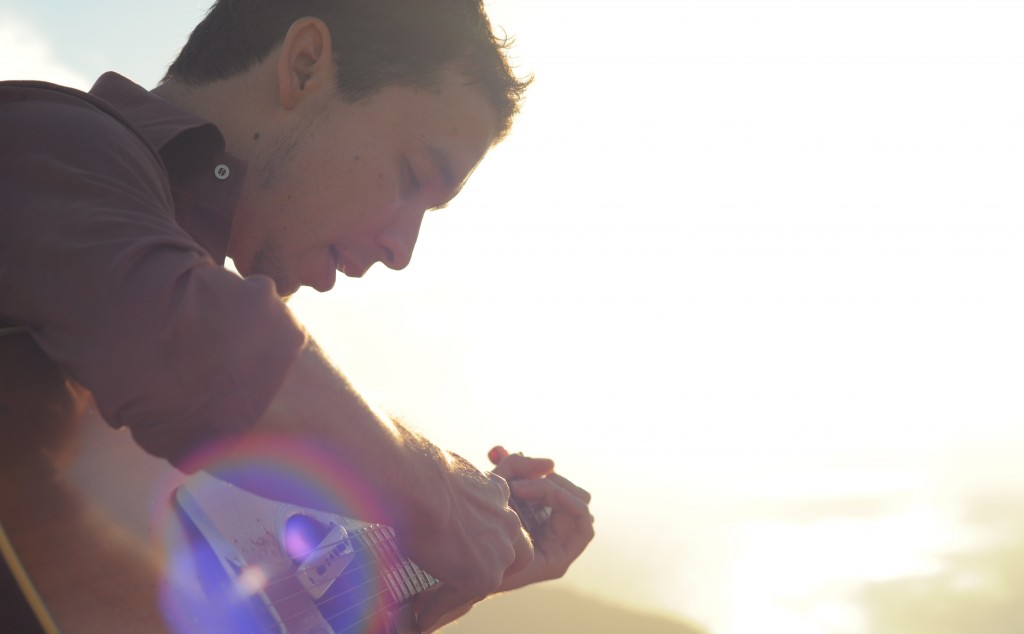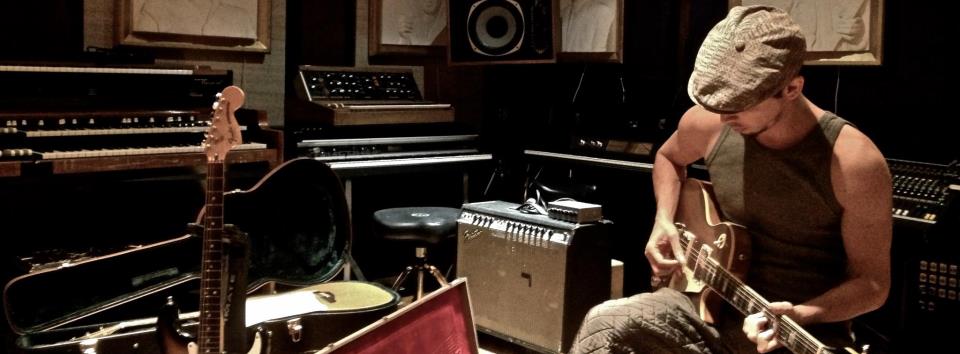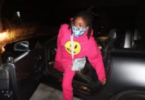- DISCOVER THE CALIFORNIA CREATIVE HOT GIRL SAVANNA LOWE - February 23, 2024
- Healthy Glow Up Tips with Ally Renee! - February 21, 2024
- ALLY RENEE DA MOST BEAUTIFUL GIRL - January 21, 2024
Aloha! Born and raised on the Hawaiian island O’ahu, composer, singer, and slack key guitar master Makana, has been creating waves of inspiration with his music and activism.
GroundSounds recently caught up with the pioneer of the slack rock guitar in the exclusive interview below, check it out.
How does it feel to be considered one of the greatest living slack key guitarists?
I love playing slack key guitar; it’s like breathing for me. It’s a joy to be a part of the lineage of Sonny Chillingworth, Ray Kane, and other Hawaiian guitar masters. I consider it my kuleana (responsibility) to perpetuate and expand this beautiful art form that is indigenous to Hawai’i. But most of all, I cherish the freedom it gives me to use the guitar to create music that would otherwise not be possible, and the way the music touches people’s souls. It really is my primary language.
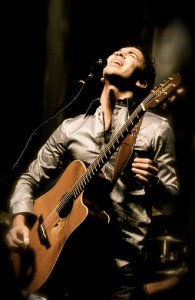 Who introduced you to the slack key guitar?
Who introduced you to the slack key guitar?
When I was 9 or so I saw a TV show called “Portraits of Paradise”. It featured slack key master Ray Kane teaching his young protégé Bobby Moderow Jr. Soon after my family attended a slack key guitar festival, and my mom went up to Bobby (who was performing with Uncle Ray) and asked him to teach me. I was 10 and Bobby was 20. Bobby became like a big brother to me and slack key became my life passion.
Do you have a favorite song that you enjoy performing most?
Definitely not, just as I don’t have a favorite word or sentence. I perceive music as a conveyor and magnifier of human emotion; thus I include a broad range of styles and modes to suite the necessity of communicating whatever it is that I feel a burning desire to “say”. Context drives my content: if I am leading a huge political rally, I sing “We Are The Many”; if I am participating in a Hawaiian Slack Key Festival I play “Napo’o Ka La”; if I am in a concert hall I play “Manic” on the piano. I love being spontaneous- risk taking, which is really trusting on a deeper level- and tuning into my audience.
Besides music what do you enjoy doing? What are some of your hobbies?
I long to be at home, be in the ocean, tend my garden, and be with my hanai (adopted) family. Simplicity is very alluring to me now, getting in touch with what is of real value- the people and places I cherish. I also enjoy reading, studying psychology & economics, dedicating my efforts to end the chemical destruction of Hawai’i, and exercising- getting out of my head and into my body.
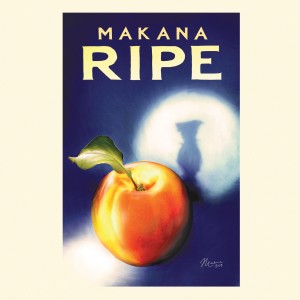 Everyone is anticipating “Ripe”, what has it been like working on this upcoming album? Is there a release date?
Everyone is anticipating “Ripe”, what has it been like working on this upcoming album? Is there a release date?
This album is really diverse- like a mix tape of the various styles I create in. It is the result of collaborations with many musicians and a number of world-class producers and arrangers: Ron Nevison (Zeppelin, Heart), Mitchell Froom (Fleetwood Mac, Sheryl Crow, Elvis Costello) and Jeff Bova (Herbie Hancock, Celine Dion). It really started back in 2001 and took 12 years to come to fruition, so it is a beautiful rendering of a good part of my musical journey. We’re looking at a release before the end of 2013.
What does your writing process involve?
It starts with intense, practically unbearable emotion: it could be despair, compassion, attraction, disgust, frustration, awe… and silence. Silence signals to the muse that it is her turn to speak. Then listening… I call it “hearing into existence”. I must listen so carefully to hear what has no sound, no voice, and then mold it into form so that others can hear it. All of this without distorting the core message, the news it brings. It must be fresh, it must not be a regurgitation, an imitation- it must say what has never been said in its own unique and effective fashion- never cliché, never colloquial for the sake of rhyme nor convenience. To articulate what must be but has never been articulated, to discover through expulsion, to magnify via intimacy: that is the job of the composer, and that is what guides me. The service of giving voice to those flaws and imbalances that define us as human beings.
For someone experiencing Hawaii for the first time, what are 3 things one must see, or do?
-Go hiking on one of the countless breathtakingly beautiful mountain ridge trails (get a guide book and heed warning signs/ ask locals for guidance).
-Watch a sunset on the west side of any of the islands, sitting on the beach at the edge of the tide.
-Make friends with locals and get invited to a backyard lu’au or family party.
Who would you love to collaborate with?
I would love to collaborate with Peter Gabriel, David Gilmour, Jimmy Page, Ry Cooder and Mark Ronson. Oh, and my favorite electronica producer, Ulrich Schnauss. And Bruce Hornsby. And Brian May. And of course Alicia Keys.
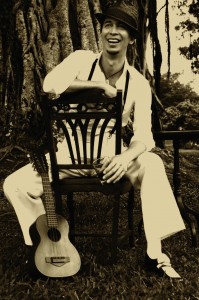 What advice would you give to aspiring musicians?
What advice would you give to aspiring musicians?
- Let listener demand, not what industry people say, determine your value. Build your audience online and through live shows, treat your fans well, be generous, and believe in yourself.
- Listen to OLD music. Expose yourself to as much music in as many different genres and styles as you possibly can. Be curious. What you listen to will heavily influence how you sound.
- Don’t have an attitude of entitlement- no one owes you anything. There are a hundred million others like you trying to get the world to listen. Forget about success- create music with the attitude that if you don’t make music, you know you’ll die. Do it because you MUST and for no other reason. Give your entire being to it, and it will give much to you.
- Before you do anything professionally, get a really good attorney. Don’t ever sign any deal that involves potentially large sums of money without first having your attorney review the contract.
- Don’t be lazy. Success in the music business requires more work than you can ever imagine.
- Give every performance everything you’ve got. I mean go nuts, be fearless, stand out, and be honed and articulate, professional yet wild.
It must have been an honor to perform at TedxMaui, what was this experience like?
Against all advice and precedent, I walked onstage at TEDx completely devoid of a plan or script. I wanted to test my theory: if one is prepared to deliver to the limits of their capacity, one can better perform by tuning into the audience frequency than by bringing a pre-determined concept and plan to stage. And it worked; I received 2 standing ovations and an encore, with Steven Tyler and Mic Fleetwood waiting at my dressing room door with hugs of congratulations. I risked much and was rewarded much, thankfully. I approach most of my performances by asking myself: what is the audience feeling? Do I trust myself enough to show up without a plan and just tune into their emotions? Hence the title of the talk: “Tuning In.”
Can you tell us a little bit about the inspiration behind your protest song “We Are The Many”? Were you happy with the response you received from the song?
My father taught me from a very young age about the dangers of allowing a small group of people to control interest rates (the value of money over time) and the availability of credit, which we observe in the form of the US Federal Reserve. When the NY Times published an article back in October 2011 accusing the movement toward stricter bank regulation as “lacking a melody”- without musical representation- I took that to heart, sat down on my living room floor and penned “We Are The Many”. Economic warfare is the primary shaper of our society and I love singing about it, because it is truly relevant to the lives of most people. And the response has been AMAZING, massive, worldwide solidarity… it seems to have resonated with many, and for that I am sincerely thankful.
Do you have plans to write another ‘protest song’ any time soon? If so, which issue would you choose to address?
I write them all the time LOL. Just the other day I rewrote Pink Floyd’s “Wish You Were Here” to read “Wish You Would Leave” (a bunch of protesters put it up on youtube), just for fun, in support of passing a county bill to regulate pesticide use and GMOs in Hawai’i. Sadly, Hawai’i is the number one genetically engineered seed exporter on planet Earth, and my friends and I are focused on changing that. Paradise needs protection from these poisons. So I write a lot on that issue (there are more lyrics on my website). That, and more songs to come about the pending dollar collapse, hard economic times, the growing police state, and other issues of the zeitgeist.
Can you tell us about one of your most memorable performances?
WOMAD Reading 2001. It was blistering hot, I was the only solo artist on the main stage, with amazing acts like Buena Vista Social Club playing the same day. It was really special because 8,000 people were in that moment introduced to a music they had never before heard: Hawaiian slack key guitar. I recall after my performance a band of 10 Italian gypsy guitarists asking me “how did you get all of that sound out of one guitar?” And the leader of the Welsh druids almost clobbered the stage manager when he came out to give me the 5 min cue till the end of my set. The druid screamed “Let the bloak play ya bloody wanka!” And I knew I was far from home, but in a different sort of home, and it was awesome and I’ll never forget it. Next March (2014) I’m touring to perform at WOMAD in Australia and New Zealand… very excited about that, it’ll be my first time there.
Some musicians simply want an outlet for their creativity, while others want to take over the world. What is your ultimate goal for your music career?
My goal is really to free myself from all goals. What good, to always reach for some other moment, when now is offering me everything I need, and through the lens of my creative perception I can create now, and for the rest of my life. I’ve come to cherish the unfinished song, the feeling of “not knowing” what the end product of my creativity will be, the process of creativity itself, and to let go of the addiction to external validation. All of my needs are met and I trust my destiny. I already perceive music beyond genre and categorization, as a language; soon we all will, thanks to technology- and artists will be free to transcend personality-driven branding to approach their art as pure exploration. If anything, that is my dream: to change the model of how we perceive music from a soundtrack for self-validation to a soundtrack for exploration. We don’t really hear songs as they are; we project our story into songs, and when there is a match, we hit repeat. But there is another way, to allow music to challenge our mythologies, to reveal those parts of us we fear or suppress, to give voice to our deepest, most intimate sentiments. That is what my heroes have done- Martin Luther King Jr, Krishnamurti, Khalil Gibran, Paulo Coelho. And this is what I would like my contribution to do as well.
If you could change one thing about the world what would it be?
The mythology that we as human beings are somehow separate from and superior to our environment and all of the living creatures that comprise it.


